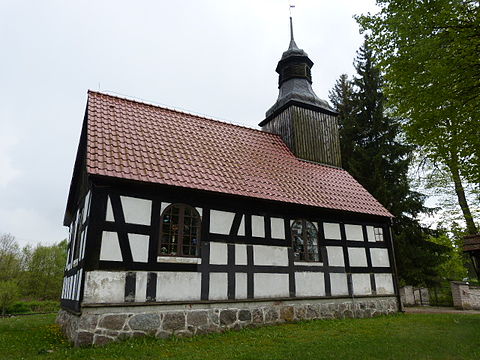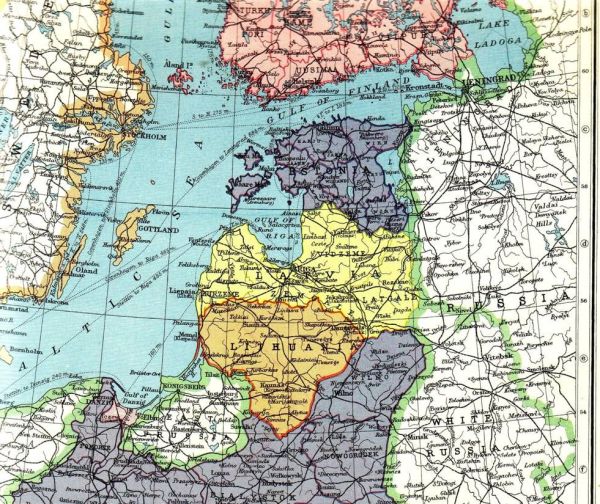My Father’s Childhood and Adolescent Years

Widow Emma moved to West Prussia to take up farming in 1903/04. Thus, Ernst spent his childhood and adolescent years with his remaining five siblings in Elsenau (Briesen County). There and in the neighbouring town of Schönsee, he attended the elementary school from 1906 to 1914. An agricultural apprenticeship followed during World War I. At the beginning of 1918, Ernst was called up for military service to receive basic military service at Kassel. Fortunately, he was not sent to the front. The war to end all war was over.
Ernst, now 19 years old, joined the Free Korps (Freikorps), which was fighting in the Baltic region against Bolshevik intruders. Probably the news reports in January 1919 about violence perpetrated by Polish insurgents prompted him to make himself available to this paramilitary organization. His main objective, however, was to acquire a settler’s parcel of land in Latvia and to make a living by farming it. This plan never materialized since Germany had lost political control over the entire development in the eastern section of the Reich.

To understand Ernst’s involvement within the historical context of the Germany’s military operations in the Baltic states, I provide a quote from Wikipedia: “The Freikorps had saved Latvia from capture by the Red Army in the spring of 1919. However, the Freikorps’ goal of creating a German dominated state in Courland and Livonia failed. Many of the German Freikorps members who served in the Baltic left Latvia with the belief that they had been “stabbed in the back” by the Weimar Republic, under President Friedrich Ebert. Hundreds of Baltic Freikorps soldiers had planned to settle in Latvia, and for those who had fought there, the land made a lasting impression, and many of them longed for the day that they could return there. The Baltic Freikorps characterized their struggle against the Reds as the “Drang nach Osten”, (the drive towards the East), and some Freikorps units returned to Germany and planned for the day of their return.”
In the early 1920s Ernst Klopp returned to the Berlin area. The only certain information we have from this time is that his sister Jula Steuer strongly advised him to throw away his gun. Carrying a weapon in those turbulent times would have put him into immediate danger.
Fascinating, Peter. Do you know if your father shared those feelings of disappointment and a sense of having been betrayed? Did he want to stay in Latvia?
LikeLiked by 1 person
I am sure that he would have liked to stay. If he had stayed, it would have been an entirely different family story.
LikeLiked by 1 person
Yep. Every path we choose leads to unknown and different consequences. I often think about those what ifs..
LikeLiked by 1 person
Thx
best regards
Bernhard
LikeLiked by 1 person
Very interesting, Peter. I’d heard of the Freikorps, but never knew about their campaign in this area. In college, I took a very interesting class about raiders & traders in ancient times around the Baltic, and learned a bit about the Hanseatic League, and this in turn reminded me, that I recently was amazed to learn the Teutonic Order still exists, although now strictly as a charitable/honorary group.
LikeLiked by 1 person
So you know more about the history of the Baltic area than most people, Robert.
LikeLike
I did not know about the Freikorps and Latvia either, so thanks for the history lesson!
LikeLiked by 1 person
After our aunt did some searching, we are from Prussia. Not much is discussed among us , yet great to know .
On Friday, June 26, 2020, The Peter and Gertrud Klopp Family Project wrote:
> Peter Klopp posted: ” My Father’s Childhood and Adolescent Years Church in > Elsenau (Olszanowo) Widow Emma moved to West Prussia to take up farming in > 1903/04. Thus, Ernst spent his childhood and adolescent years with his > remaining five siblings in Elsenau (Briesen Count” >
LikeLiked by 1 person
Your family has certainly had an interesting history. I can well understand why you’ve been chronicling it here.
LikeLiked by 1 person
Peter, thank you for sharing. The twists and turns of your family and your father’s life is very interesting. I can understand that your children, grandchildren and nieces and nephews would find this information invaluable.
LikeLiked by 1 person
One of the things I like best about your blog is how much history I learn from it!
LikeLiked by 1 person
All personal events should be seen within its historical context. That approach gives meaning to both history and the personal story.
LikeLiked by 1 person
Does Schönsee live up to its name?
The inhabitants of the Baltic countries have unfortunately had to fend off attacks for a long time. It seems the Russians would gladly take over the region again if they could.
LikeLiked by 1 person
Fortunately, the Baltic countries feel pretty safe now being under the under the umbrella of the EU.
LikeLike
I hope you’re right. Ukraine didn’t fare so well.
LikeLiked by 1 person